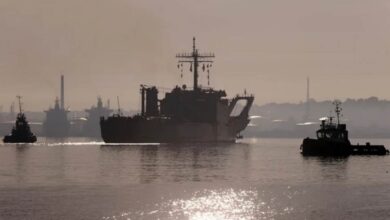Confrontations between Maduro and opposition affect dialogues
The president of Venezuela, Nicolás Maduro, said on Friday that "they (the opposition) will no longer see the face" to the government at the dialogue table, sponsored by Norway, until the opposition leader, Juan Guaidó, "rectifies" his position on the Esequibo region, an old Venezuelan territorial dispute with Guyana.

President of Venezuela, Nicolás Maduro. / Via REUTERS
Reuters | Vivian Sequera, Mayela Armas y Deisy Buitrago
Listen to this article
Leer en español: Enfrentamientos entre Maduro y oposición en mesa de diálogo
Critics of the president of Venezuela say that the government rekindles tensions over the Esequibo region, a sparsely populated area in the east of the country, to divert attention from the economic problems of the OPEC country.
"Until the deputy Guaidó rectifies his claim to deliver the Essequibo clearly we are still lifted from that dialogue table … or rectify or do not see our face, that simple," said Maduro in an act broadcast on television state.
The conversations between the parties, under the efforts of Oslo, began in May, but were suspended in August, when Maduro delegates retired annoyed by a decree of US President Donald Trump, which froze Venezuelan assets abroad.
Read also: Venezuela announces military exercises on Colombia border
The opposition has said that it is Maduro's government that has to respond when those negotiations are reactivated because it was they who withdrew. Tentatively, he planned to return after the United Nations General Assembly in September, three sources close to the opposition said.
Amid the controversy, the government accused Guaidó this week of wanting to "sell" the Esequibo area, while the opposition leader dismissed the accusations and reiterated Friday on a tour of the east of the country that has always maintained that the territory in dispute with Guyana belongs to Venezuela.
Guyana argues that Caracas resigned its claim for the Esequibo after an international court ruling in 1899, but Venezuela then backed down that decision. In January 2018, the United Nations referred the dispute to the International Court of Justice.
The old territorial dispute between Venezuela and Guyana has also been revived in recent years after Exxon discovered more than 5,000 million barrels of oil and gas off the coast of Guyana. In Venezuela, a member of OPEC, by contrast, crude oil production is at its lowest levels of 70 years in the midst of the severe economic crisis.





